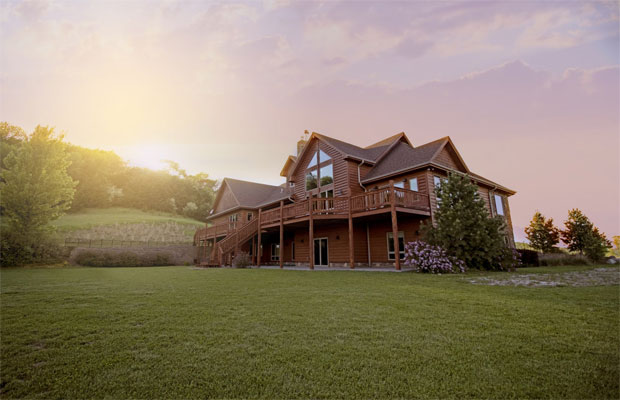Behind the Scenes of House Flipping: The Challenges and Rewards from an Expert Who Flipped Over 1000+ Homes

Behind the Scenes of House Flipping: The Challenges and Rewards from an Expert Who Flipped Over 1000+ Homes
House flipping can be a lucrative real estate investment, but it’s not ideal for everyone. With the popularity of HGTV flipper reality series and some success stories, many people think flipping is a fast track to success.
The reality couldn’t be further from the truth. While there are benefits and opportunities with house flipping, it takes a lot of planning, capital, effort – and most importantly, risk – to succeed compared to more passive investments.

The Benefits of Getting into House Flipping
Financially Rewarding
Undoubtedly, one of the biggest benefits of house flipping is the financial rewards and potential for substantial profits. When you purchase a house below market value, and then renovate it to sell at a higher price, you can get a big return in a short timeframe.
You can also build equity quickly. As you increase the value of the property through renovations, you are turning it into an asset that can be leveraged for future investments and the start of a successful real estate portfolio.
Creative Control
For some, house flipping is as much about creativity as it is about profits. You have the freedom to experiment with design choices – down to the colours, materials, layout, and aesthetic details – to bring your ideas to life.
DIY enthusiasts enjoy house flipping, but it can even be a good way for interior designers or contractors to gain more hands-on experience and refine their skills in real estate and renovation.
You Get to Choose the Outcome
Along with creative control, house flipping gives you the advantage of choosing the outcome. You can decide on every detail, from the list price to the sales terms. You can control how much profit you make (within the market) and negotiate with buyers to reach your financial goals.
In addition, you’re not beholden to the open market like traditional sellers. They have to wait for the right buyer to come along to avoid losing money on their property, but you can take a more proactive approach. You’re in the driver’s seat, so you can market aggressively or take your time and wait for the most profitable season.

The Challenges No One Likes to Talk About
Hidden Costs
When you buy a house to flip, you may encounter unexpected repairs and problems that drive your renovation budget up. For example, missing a mould problem in a basement wall can add thousands of dollars to your renovation costs – cutting into your profits.
Worse yet, some houses have problems that may not be worth fixing for a quick flip. Structural issues, such as roof damage, foundation problems, or termite infestations can be costly to fix, add time to your renovation, and put a big dent in your budget.
It’s crucial to conduct a thorough inspection of any property before taking the plunge, but it’s not uncommon for beginner flippers to get in over their heads.
Market Fluctuations
Market fluctuations are another important consideration. During economic downturns, the real estate market can experience a decline in property values that may impact your house’s resale value. It’s important to consider the economic conditions and potential impact before choosing to flip.
Along with the market, you’re at the mercy of buyer preferences. Few trends move faster than home design trends, so you can put your money into unique features or aesthetic choices that were on trend when you did them but have since fallen out of favor. You have to stay on top of the current trends to ensure that you’re making design decisions that will appeal to a wide range of buyers and generate a return.
Unreliable Contractors
Unless you have the contracting skills yourself, you may need to rely on contractors for some of your home renovations. However, not all contractors are reliable. Missed deadlines or delays can significantly impact your timeline and may increase your holding costs.
In addition, not all contractors deliver quality work. If you end up with a shoddy contractor, you may need to hire another to fix the work and invest in new materials – both of which increase your renovation costs.
With this in mind, vetting contractors before hiring them is one of the most important parts of taking on a house flip. Making sure they have good reviews, references, and licensing and insurance is important to avoid problems in the future.
High Stress
If you want a stress-free way to make money, house flipping isn’t it. There’s a lot of stress involved, including planning timelines, budgets, inspections, and the sales process. You may come against challenges along the way, some that affect your profits or holding costs.
Flipping houses carries financial risks as well, especially if you’re new to the industry. You need to be prepared for market fluctuations, unexpected costs, and the possibility that your hard-earned property may sell at a loss.

Key Strategies for a Successful Flip
In-Depth Market Research
Don’t decide to flip a house on a whim. Make sure you conduct thorough market research to understand the local real estate market – including trends, pricing, and buyer preferences – to make informed decisions about whether your property is worth purchasing and flipping for profit.
Accurate Property Valuations
You don’t want any surprises when it comes to the renovation. Conduct thorough property inspections from reliable home inspectors and contractors to ensure you won’t have major renovations outside of your budget. You should also get accurate appraisals to ensure you’re paying a fair price.
Having a Reliable Team
You should have a team of reliable professionals before you make the decision to flip, including real estate agents, contractors, and home inspectors. These professionals are an indispensable asset to help you make good decisions about your potential flip and profitability.
Setting Realistic Budgets and Timelines
Develop a detailed budget that accounts for all your anticipated expenses, including holding costs, renovations, and contingencies. Then, set timeframes for each stage of the flip to ensure you stay on track – both with time and budget – and avoid unnecessary delays that cut into your profits.
Prioritizing Smart Renovations
Though trends come and go, smart renovations are here to stay. These upgrades add a lot of value to your property, particularly with kitchen and bathroom renovations, and increase the appeal for potential buyers.
However, be careful not to over-renovate. Spending money on flashy or bespoke upgrades that don’t generate a return won’t serve your investment. Remember, this isn’t your house and what you like – it’s about creating a home that’s appealing to the local buyers.
Reap Rewards with House Flipping
Though a successful flip can be extremely satisfying and lucrative, there’s a lot of risks involved. If you’re interested in flipping, make sure you plan ahead and go into the venture informed to maximize your profits and minimize your risks.

Author Bio:
Guest Article by Michael Alladawi. Michael Alladawi is CEO & Founder of Revive Real Estate, is a Southern California real estate veteran with a proven track record as a builder, investor, and respected home flipper. Michael created Revive Real Estate to share his industry knowledge and help homeowners maximize their profits when selling their homes. Michael’s passion for his work is as big as his desire to create lasting partnerships. For Michael, it all comes down to how much value one offers, both in business and life relationships.




